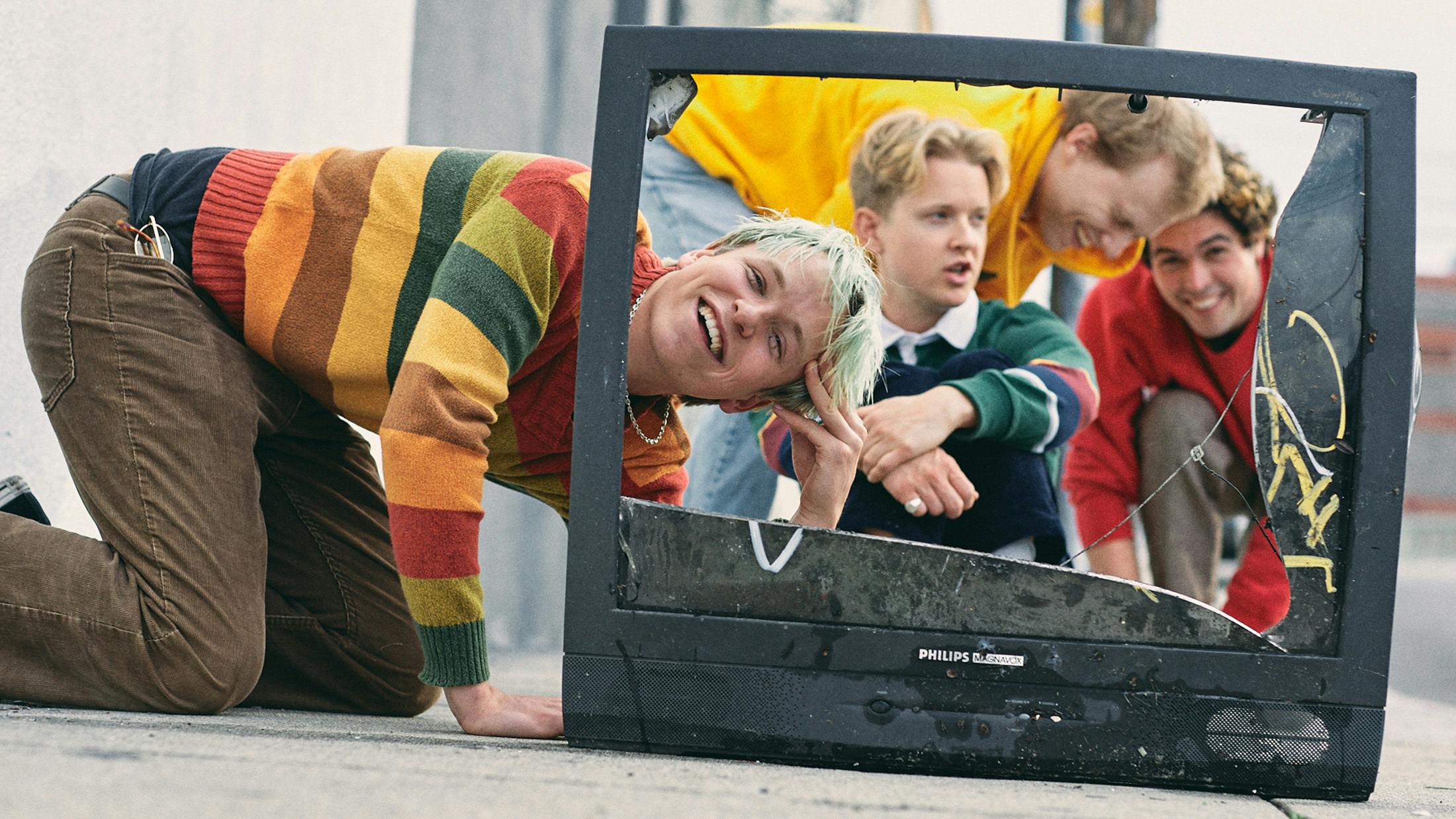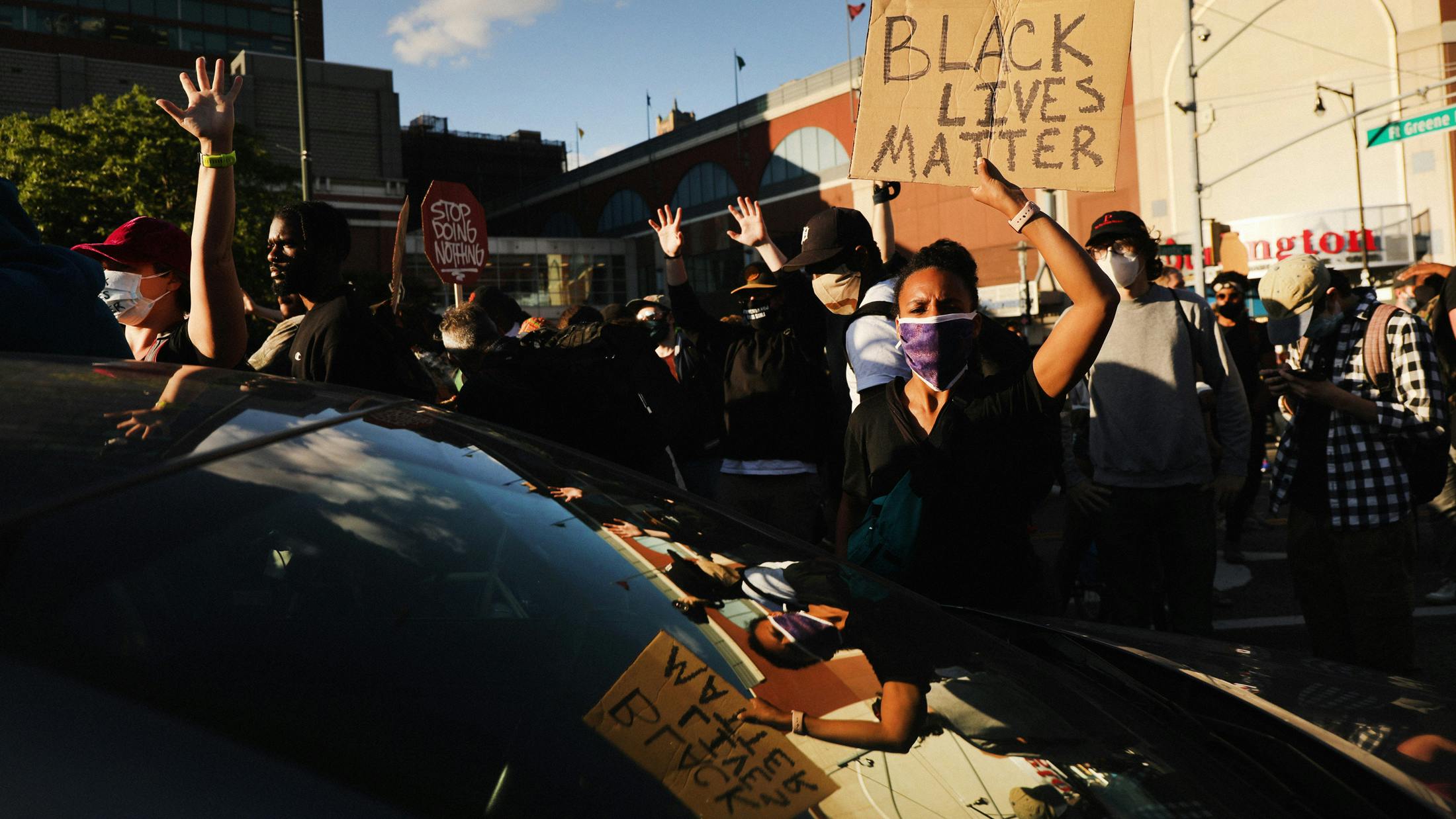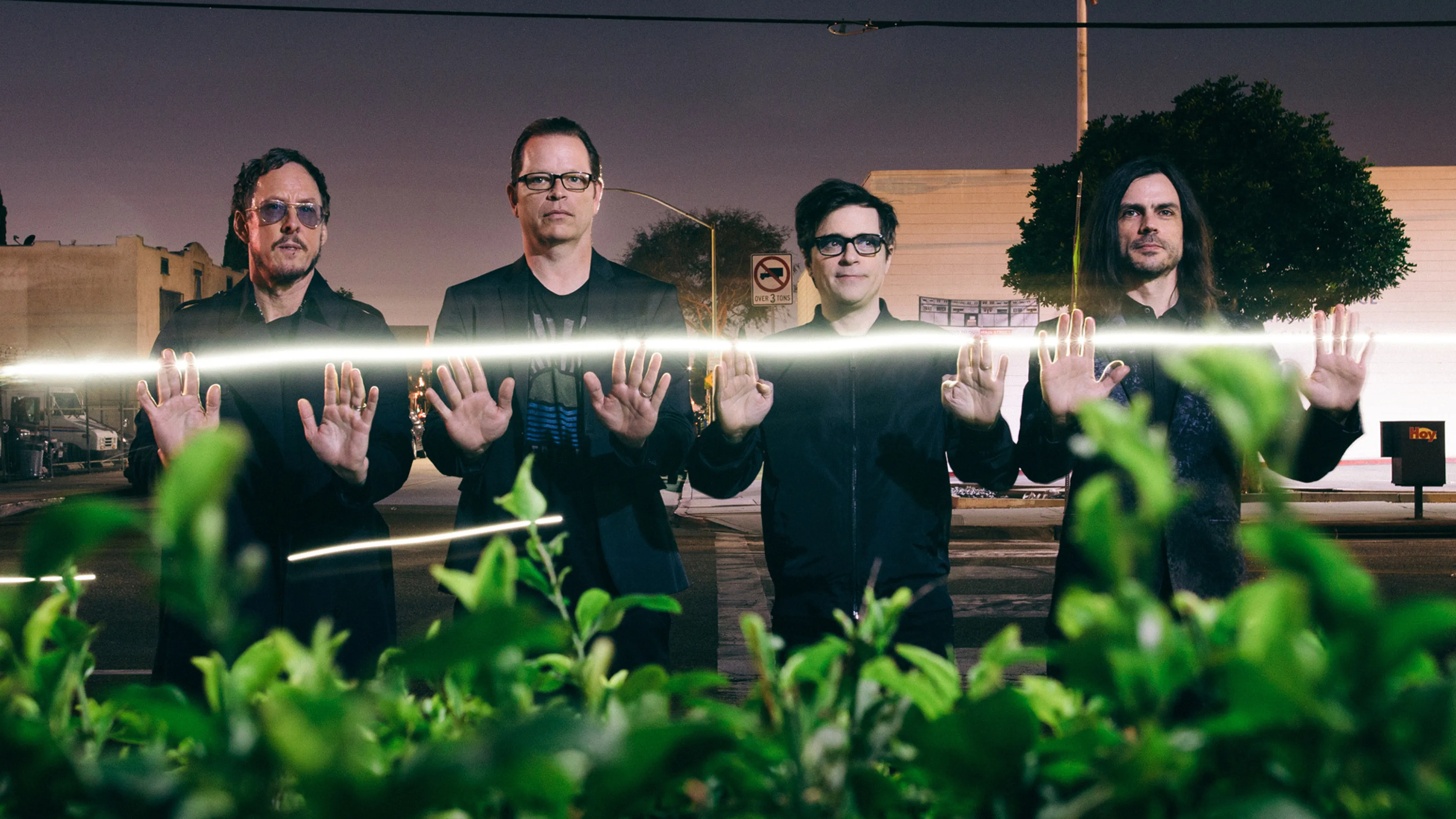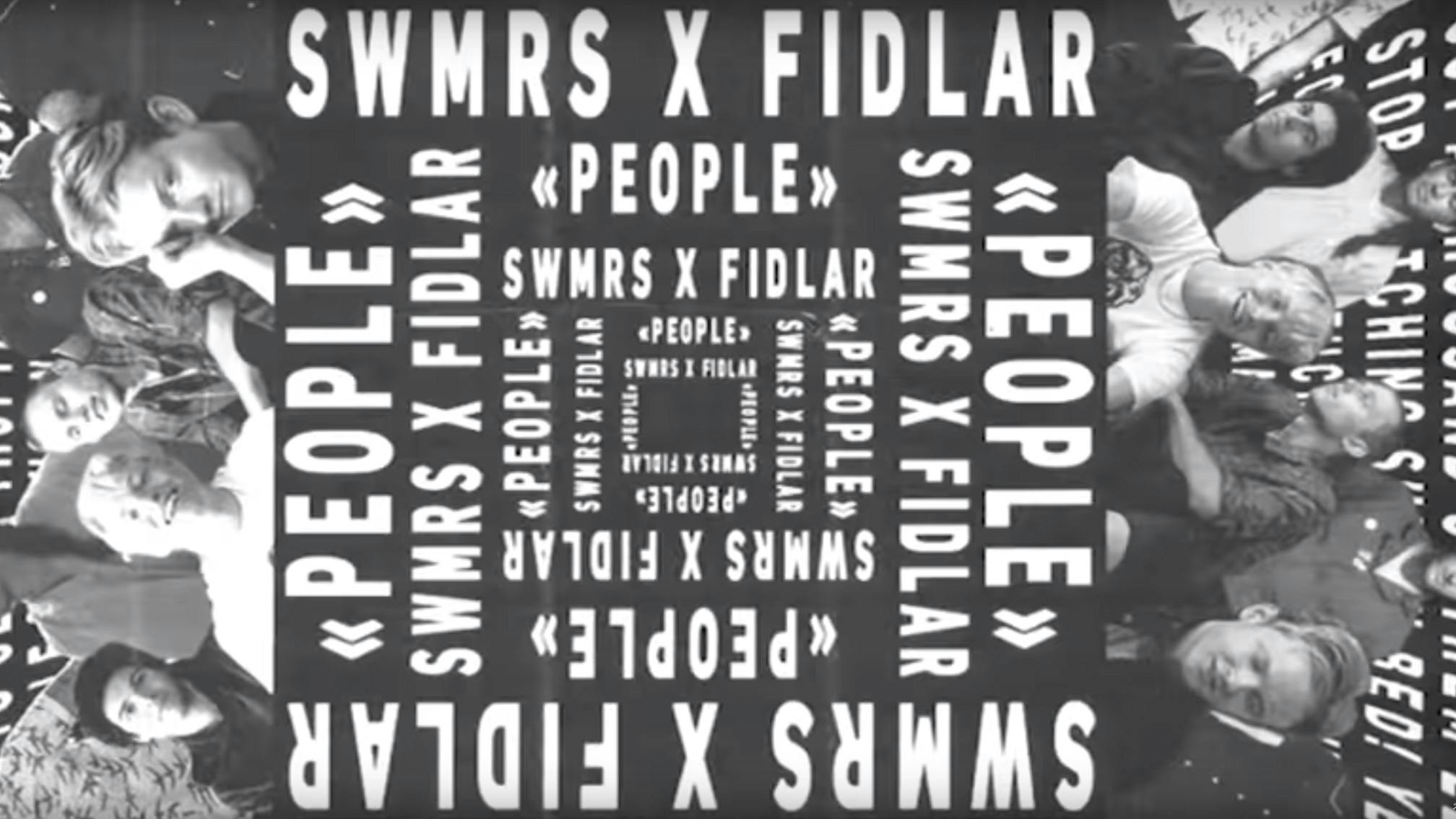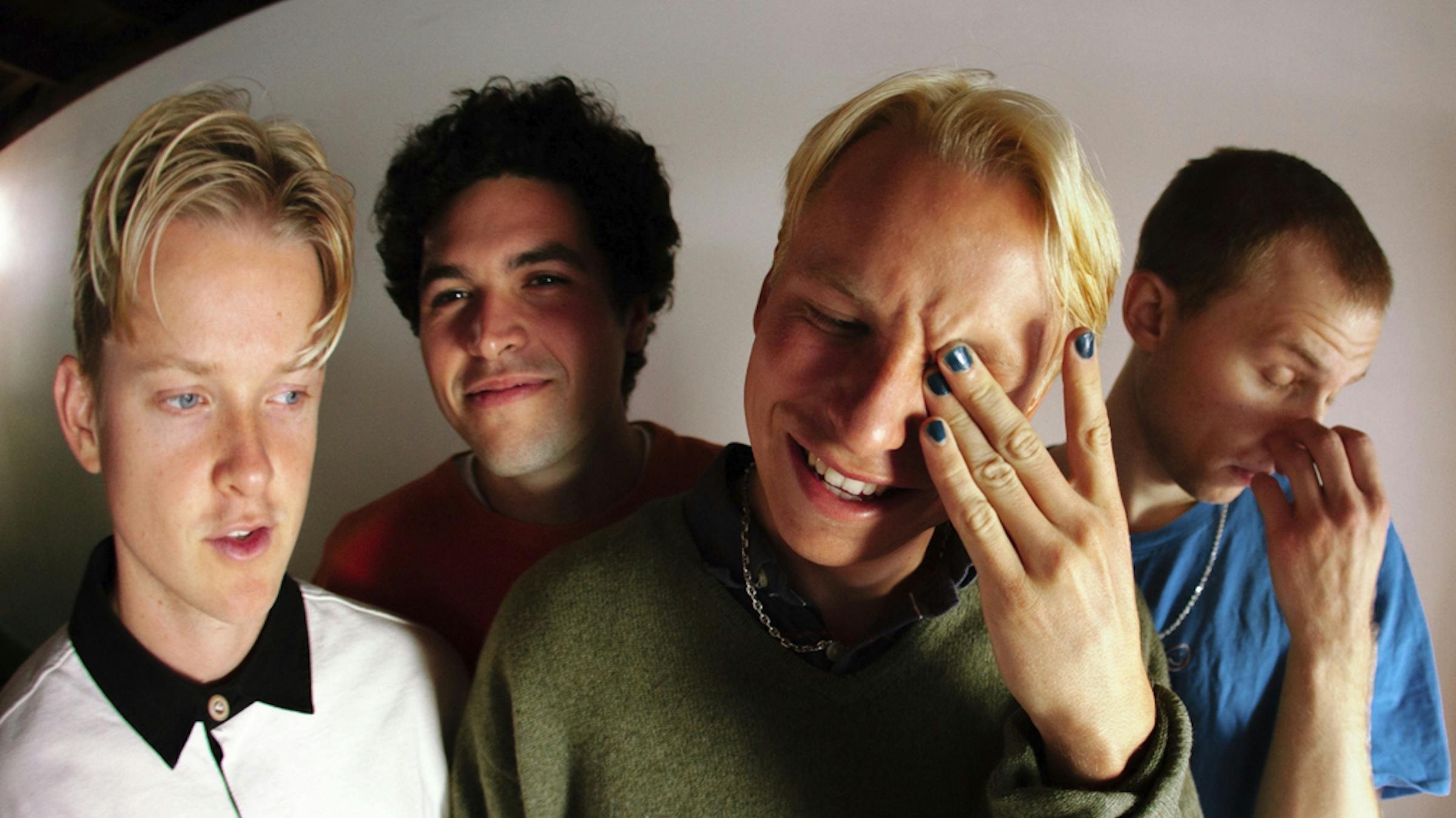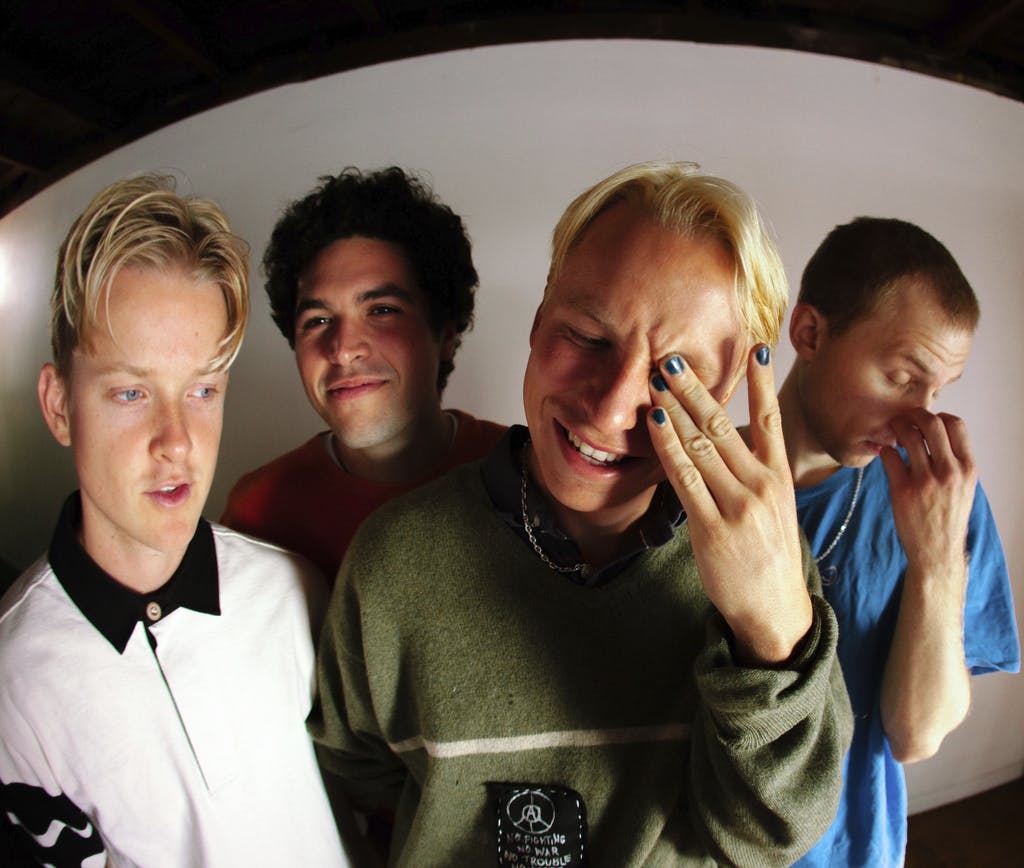“It might be someone having to do homework, or taking out the trash,” says Max, returning to his point. “They’re the problems right in front of us at that time.”
In America right now, the rise of nationalism is sadly becoming one of the most pressing everyday concerns, but Cole says that’s countered by a pervading sense of shame among those who have to bear witness to it.
“A lot of people are weirdly ashamed to be American right now, which is disheartening,” says Cole. “It makes it so hard for people to look forward.”
“It’s not limited to America though,” adds Max, constructively rather than defensively. “You go to Poland and they’re saying, ‘Oh man – our government!’ and then you come [to the UK] and it’s, ‘Oh man – Brexit!’ The thing they can all relate to is the problem of nationalism.”
“The older I get the more responsible I feel,” says Joey. “And what I can do is be accepting of other cultures and learn about them – we all have a responsibility to do that.”
“And just to be kind at the baseline of it,” smiles Cole. “There’s so much unkindness in the world, especially in America. You can either say, ‘Fuck it, I’m moving to Canada’, or you can say, ‘How do we make it so we can try and enforce some positive change?’ We’re not going to give up.”
It’s fair to say SWMRS fans aren’t your average rock devotees. Only this week, Cole tells us, one got in touch to vent about kids in his hometown not knowing who Nancy Pelosi is. And while it’s odd that someone be ostracised for being able to identify the Speaker of the U.S. House of Representatives, the story illustrates just how different SWMRS’ listeners are.
It’s a relationship between band and audience that’s more mutually beneficial than most. In December, Max showed his appreciation for the passionate, communicative support they receive by telling his 39,500 Twitter followers he’s jealous of SWMRS for their fans, despite being in SWMRS. In return, those beloved fans look to the band for support in everyday lives that may be testing, for guidance in what their heroes say as much as what they play.
“This is how fucked-up parts of America are,” explains Cole. “Us, a group of straight white dudes, have become the queer icons for those kids who don’t have access to gay culture. These kids see us supporting the LGBTQ community and say, ‘Fuck it – I’m going to come out to my dad now.’ We’re trying to make a space for them to feel accepted. That’s what music does.”
The question of just what SWMRS’ music sounds like was one Berkeley’s On Fire had to provide a definitive answer to. This seems particularly important to Joey, who explains he’d grown weary of “stagnant” pop and the underground’s preoccupation with nostalgia – as well as assumptions about what he should be doing, based on his parentage.
“It’s something I’ve grown up with,” he explains. “You’re expected to do certain things, know certain things, and play certain things. Am I supposed to wear all black and listen to emo? Fuck you – I don’t do that! My entire life I’ve thought, ‘How do I do something different?’”
Max agrees. He and his bandmates can only cite two bands, Blur and The Clash, other than their own that they can all agree on. The four men’s musical educations have been entirely different; Cole proudly rocks a Missy Elliott T-shirt today, while Max fondly recalls performing in Les Misérables at high school.
“None of us are the same at all, so why make music that’s in one box when we represent four completely different worlds?” says Max, grandly. “So why not create our own borderless box?”
“If you’re putting up walls to block out sound then you’re being obtuse,” is Cole’s take.
Thankfully Rich Costey was on hand to assist with the demolition work. Mr Armstrong senior had produced the band’s two albums as Emily’s Army, while Drive North saw FIDLAR singer-guitarist Zac Carper help them realise their change of course. This time around, however, it was decided a more experienced head was needed to assist SWMRS in realising their place in the musical landscape.
During the band’s search, the four gauged the success of meetings with prospective producers on how quickly the time passed. Most encounters, they admit, felt as long as they were, if not longer, so were no-goes. Then came Rich, a man they describe as “a demigod” and “Wikipedia for music and sounds”, who questioned the band about what made the music they love special. Only later did the boys register the breezy exchange had lasted four hours. They knew then they’d found their man – and a tough one at that. Rich’s honesty sometimes resulted in reactions to the band’s efforts ranging from, “Well that sucked”, to, worse, complete silence, but his dogged aversion to recreating anything that’s come before proved an effective filter for them.
“He was the final piece of the puzzle,” says Joey, who reveals he got through multiple snare drums after his initial offerings were nixed by the producer for sounding “too pop” and “too rock”.
“We were all over the place,” says Max of those initial efforts. “We had all the different pieces, but Rich helped us put them together.”
“This is exactly what we wanted it to be,” says Max of Berkeley’s On Fire’s convergence of diverse sounds, unusual arrangements and observations big and small. “Whatever other bands want to do is cool, but this is what we’re doing. You can go play a dad show.”
This comment, joke though it is, does raise an important final question. If SWMRS are trying to speak for, with and to factions of young people without a voice around the world, does this mean that, for all their restless ambition, they aren’t trying to get to everyone? Does this politically conscious band think some minds can’t be reached?
“We’ll certainly always try,” promises Cole.
“Identifying your fan base is one of the most important things you can do,” suggests Joey. “If you come to one of our shows, you’ll see 12 to 25-year-old people, and that’s the coolest thing.”
“I hold a couple of bands really dear to my heart as a fan from when I was between the ages of 15 and 22,” Max says. “Those are the years when you change so much as a person. I want to be that band for people, because that band will stick with you in a special way for the rest of your life.”
And while that’s looking far ahead, on a more short-term basis there’s the everyday good SWMRS can bring to a world facing an uncertain future.
“Music is everything, and it makes you feel,” beams Cole. “The more you can feel, the better you’re going to be as a person. And only when you feel like a better person can you help with bringing about real change. That’s what music does.”
Berkeley's On Fire is out now via Fueled By Ramen. SWMRS play Reading & Leeds in August.
